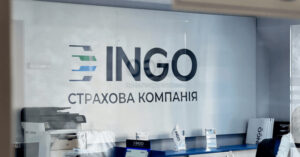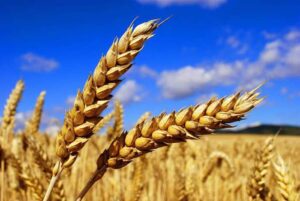
Страхова компанія “ІНГО” остаточно завершила процес відшкодування збитків після резонансної пожежі, яка сталася ще взимку 2024 року на виробничих потужностях компанії “Віктор і К” (бренд “Королівський смак”) у Кіровоградській області.
Як повідомляється в інформації страховий компанії, загальна сума виплати становить 81,4 млн грн. Це одна з найбільших страхових виплат за останній час у секторі промислового страхування.
Компанія уточнює, що під час пожежі, що сталася 15 лютого 2024 року в смт Власівка на Кіровоградщині, вогнем було повністю знищено масло-пресовий цех, склад готової продукції та все технологічне обладнання, що перебувало всередині. Будівлі після пожежі не підлягають відновленню. За висновками правоохоронців, причиною пожежі став підпал невстановленою особою. Кримінальна справа досі триває, результатів слідства наразі немає.
Як зазначили у страховій компанії, процес врегулювання збитків виявився особливо складним через масштаби руйнувань та необхідність точної і професійної оцінки.
Повний обсяг відшкодування підприємству було здійснено 1 липня. З 81,4 млн грн виплат, понад 64 млн грн припадає на будівлі, ще майже 17 млн грн – на обладнання.
“Цей страховий випадок – один із найбільших у галузі за останні роки. На думку експертів страхового ринку, такі прецеденти важливі, адже вони підтверджують здатність страхування підтримувати бізнес у складних умовах”, – підкреслюється в інформації.
Підприємство “Віктор і К” відоме завдяки бренду “Королівський смак”, під яким випускають майонез, кетчупи, соуси та олії.
АТ “Страхова компанія “ІНГО” володіє ліцензіями на 18 класів страхування та понад 30 років надає страхові послуги як фізичним особам, так і компаніям. СК “ІНГО” входить до переліку найбільших страхових компаній України за обсягом премій, величиною власних активів та сумами виплат страхових відшкодувань. Її мережа включає 25 філій, п’ять відділень і дев’ять центрів обслуговування клієнтів, що функціонують у всіх регіонах країни
З 2017 року основним акціонером є українська бізнес-група DCH.

Антимонопольний комітет України (АМКУ) надав дозвіл компанії “Vi.An Holding Limited” (Ві.Ан Холдінг Лімітед) (м. Лімасол, Кіпр) Віталія Антонова на набуття контролю над ТОВ “Кайрос-Холдінг”, повідомила пресслужба АМКУ в Facebook.
“Рішення про придбання – логічне продовження нашої стратегії розвитку в агронапрямку, розширення земельного банку. Інтерес до Тернопільської та Рівненської областей, де, власне, зосереджений земельний банк вищезгаданої компанії, зумовлений як сприятливими природно-кліматичними умовами, так і кращими показниками врожайності порівняно з іншими регіонами України”, – прокоментували рішення АМКУ в департаменті корпоративних коммунікацій группи компаній ОККО.
Компанія також нагадала, що завершує будівництво елеватора на 60 тис. тонн зберігання, в процесі будівництва – біоетанольний завод, який має розпочати виробництво у другій половині 2026 року. Потужності розраховані на виробництво 85 тис. тонн біоетанолу на рік, – як для внутрішньоукраїнських потреб, так і для продажу на зовнішні ринки.
Крім того, важливою складовою аграрного портфеля в OККО назвали партнерство з “Гадз- Агро” (Тернопільська обл.), разом із якою компанія розвиває агровиробництво.
ТОВ “Кайрос-Холдинг” заснована 2024 року у Львові. Спеціалізується на вирощуванні зернових, бобових та олійних культур, організації будівництва будівель, посередництві у торгівлі товарами широкого асортименту, оптовій торгівля твердим, рідким, газоподібним паливом тощо.
Згідно даних сервісу Opendatabot, підприємство у 2024 року отримало доходу 1,543 млн грн, чистого збитку 1,136 млн грн, має боргові зобов`язання на 857,395 млн грн, активи оцінюються в 856,31 млн грн. Статутний фонд – 50 тис. грн. На підприємстві працює 1 співробітник. Бенефіціарами є бізнесмени Богдан Кусьпісь та Іван Коцьо, які володіють низкою хлібо-булочних заводів у Львові та Вінниці, ресторанами, будівельними компаніями тощо.
OKKO Group об’єднує понад 10 різнопрофільних бізнесів у сфері виробництва, торгівлі, будівництва, страхових, сервісних та інших послуг. Флагманською компанією групи є концерн “Галнафтогаз”, який керує однією з найбільших автозаправних мереж в Україні під брендом “ОККО”, що налічує близько 400 автозаправних комплексів.
Засновником та кінцевим бенефіціаром групи є Віталій Антонов.

86 795 новонароджених в Україні та 249 002 померлих — таку статистику життя і смерті за пів року 2025 оприлюднив Мін’юст. Наразі на одного малюка припадає 3 померлих, й ця ситуація незмінна протягом останніх 5 років. Найбільше народжують у столиці, а найчастіше помирають на Дніпропетровщині.
86 795 немовлят народилось за останні пів року. Можна зазначити, що народжуваність у війну стабілізувалась — адже це майже стільки ж, як за відповідний період торік. Тоді за перше півріччя у світ прийшло 87 655 маленьких громадян.
Втім загалом тренд невтішний: за десять років народжуваність зменшилася у 2,2 раза. Якщо у 2016, в середньому, на місяць народжувалося 32 тис. немовлят, то цьогоріч — лише 14 тисяч.
Найбільше всього немовлят традиційно з’являються у Києві — 9 947 або 12% від загальної кількості новонароджених. Наслідує Львівщина із 8 282 (10%) малят. Замикає трійку лідерів Дніпропетровщина — 6 670 (8%).
У деяких регіонах країни, попри війну, спостерігається навіть невеличкий приріст народжуваності. Лідирує Київщина — +6% за рік, на Львівщині +5%, на Волині +6%.
Загалом невеличкий приріст спостерігається у 7 регіонах країни.
Водночас у регіонах, наближених до лінії фронту, очікувано на світ приходить менше дітей. На Донеччині за рік народжуваність скоротилась майже удвічі (-47%), на Херсонщині — на 11% та на Чернігівщині на 10%.
Традиційно народжується найбільше хлопчиків – 51%.
Водночас 249 002 людини померло за перше півріччя в Україні. За рік ситуація майже не змінилась. Наразі на новонародженого припадає троє померлих. Цей показник незмінний протягом останніх 5 років. Таким чином населення країни зменшується більш ніж на 300 тис. щороку.
До порівняння, у 2016 році на 1 малюка припадало 2 смертей.
Кожна дев’ята людина в Україні помирає на Дніпропетровщині — 27 120 померлих, це стабільно найбільший показник в Україні. Серед антилідерів Київ із 18 114 смертями та Харківщина — 17 694 померлих.
https://opendatabot.ua/analytics/birth-death-2025




Компанія Alliance Novobud визнана однією з найкращих у сегменті столичного передмістя за результатами щорічного рейтингу девелоперів, який склав портал Minfin. За підсумками 2024 року девелопер впевнено зайняв 3-тє місце серед забудовників передмість Київської області, довівши стабільність, надійність і високий темп розвитку навіть в умовах турбулентного ринку.
Цьогоріч редакція дещо оновила методику складання рейтингу, додавши кілька важливих критеріїв, що дозволяють потенційним покупцям та інвесторам отримати глибше розуміння якості проєктів та надійності забудовників. Alliance Novobud продовжує тримати високу планку, щороку демонструючи стабільний розвиток і відповідальне ставлення до зобов’язань перед клієнтами.
«Забудовники передмістя мають перевагу — сьогодні вони можуть будувати швидше й більше. Але й вимоги до них зростають. Тепер недостатньо просто будувати квадратні метри. Перемагає той, хто створює якісний та продуманий життєвий простір», — наголосила Ірина Міхальова, CMO Alliance Novobud.
Alliance Novobud будує не просто квадратні метри, а передусім — осмислені простори для життя. Дякуємо клієнтам та партнерам за довіру! Попереду — ще більше важливих кроків і нових проєктів.

Міністри закордонних справ Узбекистану, Афганістану і Пакистану Бахтієр Саїдов, Амір Хан Муттакі та Ісхак Дар під час зустрічі в четвер у Кабулі підписали тристоронню рамкову угоду про розробку техніко-економічного обґрунтування (ТЕО) проекту Трансафганської залізниці.
«Підписали тристоронню рамкову угоду про розробку техніко-економічного обґрунтування проекту Трансафганської залізниці Узбекистан-Афганістан-Пакистан, що має стратегічне значення для всієї Євразії», – повідомив глава узбецького МЗС у своєму телеграм-каналі.
Він зазначив, що цей транспортний коридор поліпшить торгівлю, підтримає економічне відновлення Афганістану і відкриє нові шляхи до світових ринків через південні порти.
За словами Саїдова, в ході зустрічі узбецька сторона підтвердила прихильність зміцненню торговельних зв’язків, розширенню співпраці в сільському господарстві, фармацевтиці, текстильній промисловості та будівництві, а також збільшенню можливостей Термезького міжнародного торгового центру (відкритий на території Узбекистану поблизу афганського кордону).
Як повідомлялося, у лютому 2021 року представники Узбекистану, Афганістану і Пакистану за підсумками переговорів у Ташкенті підписали спільний план дій щодо будівництва залізниці Мазарі-Шариф – Кабул – Пешавар протяжністю 573 кілометри і транзитним потенціалом до 20 млн тонн вантажів на рік.
Інтерес до фінансування проекту висловили Світовий банк, Азіатський банк розвитку, Європейський банк реконструкції та розвитку, Європейський інвестиційний банк, Ісламський банк розвитку, Азіатський банк інфраструктурних інвестицій та Міжнародна фінансова корпорація розвитку США (DFC).
У квітні 2024 року під час візиту президента Узбекистану Шавката Мірзійоєва до Москви було досягнуто попередньої домовленості про участь Росії в проекті. Попередньо обсяг перевезень російських вантажів по проєктованому маршруту можна оцінити в 8-15 млн тонн щорічно.
За оцінками Мінтрансу Узбекистану, будівництво Трансафганської залізничної лінії займе не менше 5 років, попередня вартість може скласти $4,8 млрд.
АФГАНІСТАН, БУДІВНИЦТВО, ПАКИСТАН, Трансафганська залізниця, УЗБЕКИСТАН

Аграрії станом на 18 липня намолотили 7,226 млн тонн ранніх зернових і зернобобових культур із площі 2,355 млн га проти 2,62 млн тонн із 919,9 тис. га тижнем раніше, повідомило Міністерство аграрної політики та продовольства.
У міністерстві зазначили, що вже намолочено пшениці 4,671 млн тонн (проти 1,238 тис. тонн тижнем раніше) із 1,504 млн га (434,8 тис. га), ячменю 2,182 млн тонн (1,153 млн тонн) із площі в 660,6 тис. га (364 тис. га), гороху – 362,9 тис. тонн (225,1 тис. тонн) із 170,8 тис. га (119,7 тис. га).
Лідирують по збору зернових та зернобобових Одеська область, яка намолотила 2,02 млн тонн із 722,1 тис. га, Миколаївська – 1,173 млн тонн із 488,7 тис. га, Кіровоградська – 963 тис. тонн із 238,6 тис. га.
Ріпак збирають у 14 областях. Його зібрано 614,1 тис. тонн (290,1 тис. тонн) із 360,3 тис. га (178,9 тис. га).
Як повідомлялося, станом на 19 липня 2024 року в Україні жнивували аграрії всіх областей, які намолотили 15,7 млн тонн нового врожаю із 4,4 млн га, зокрема, пшениці 10,3 млн тонн із 2,627 тис. га, ячменю 3,1 млн тонн із 824,2 тис. га, гороху – 319,3 тис. тонн із 154,7 тис. га, ріпаку – 1,8 млн тонн із 779,1 тис. га, сої – 0,3 тис. тонн із 0,2 тис. га, проса – 80 тонн із 50 га.